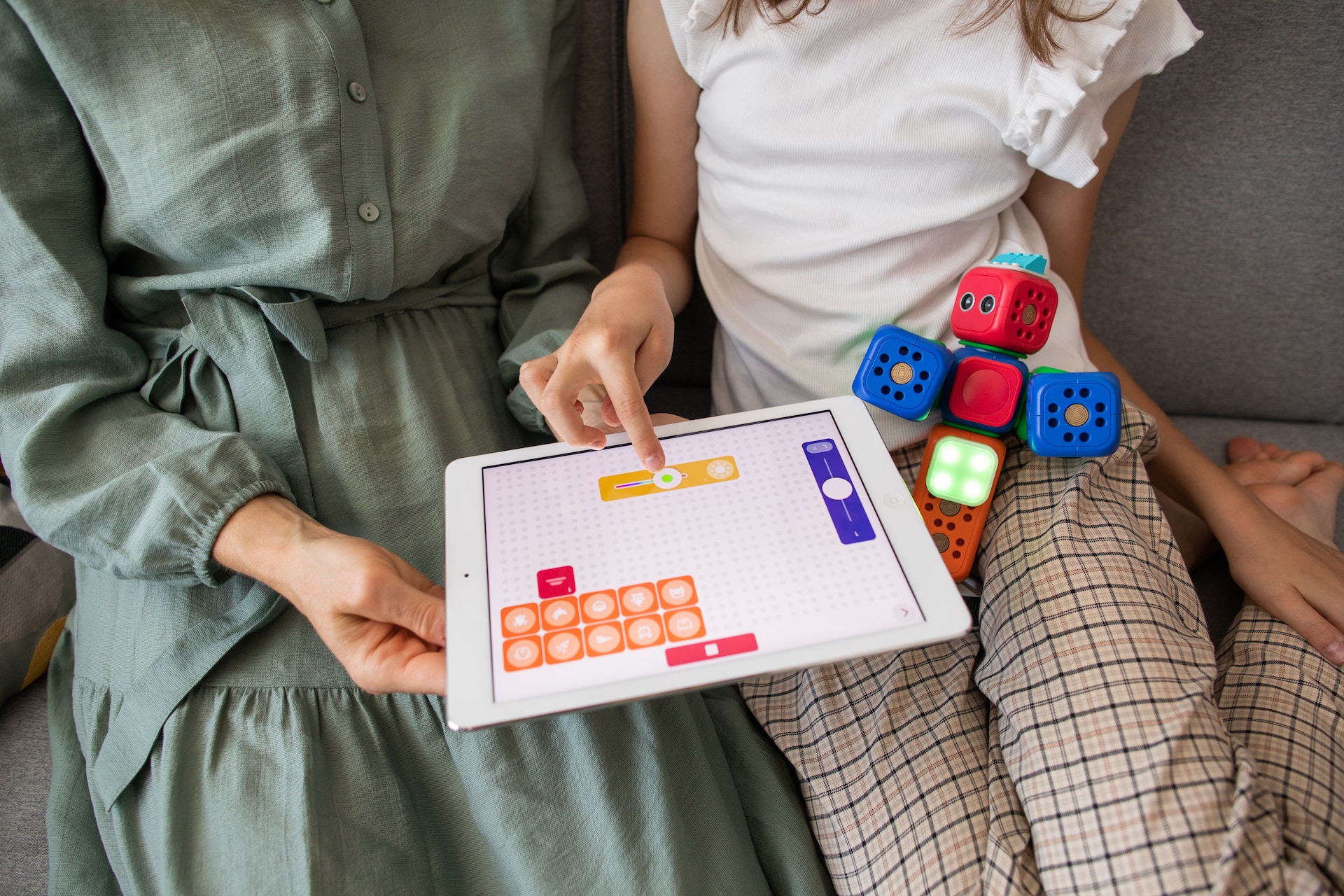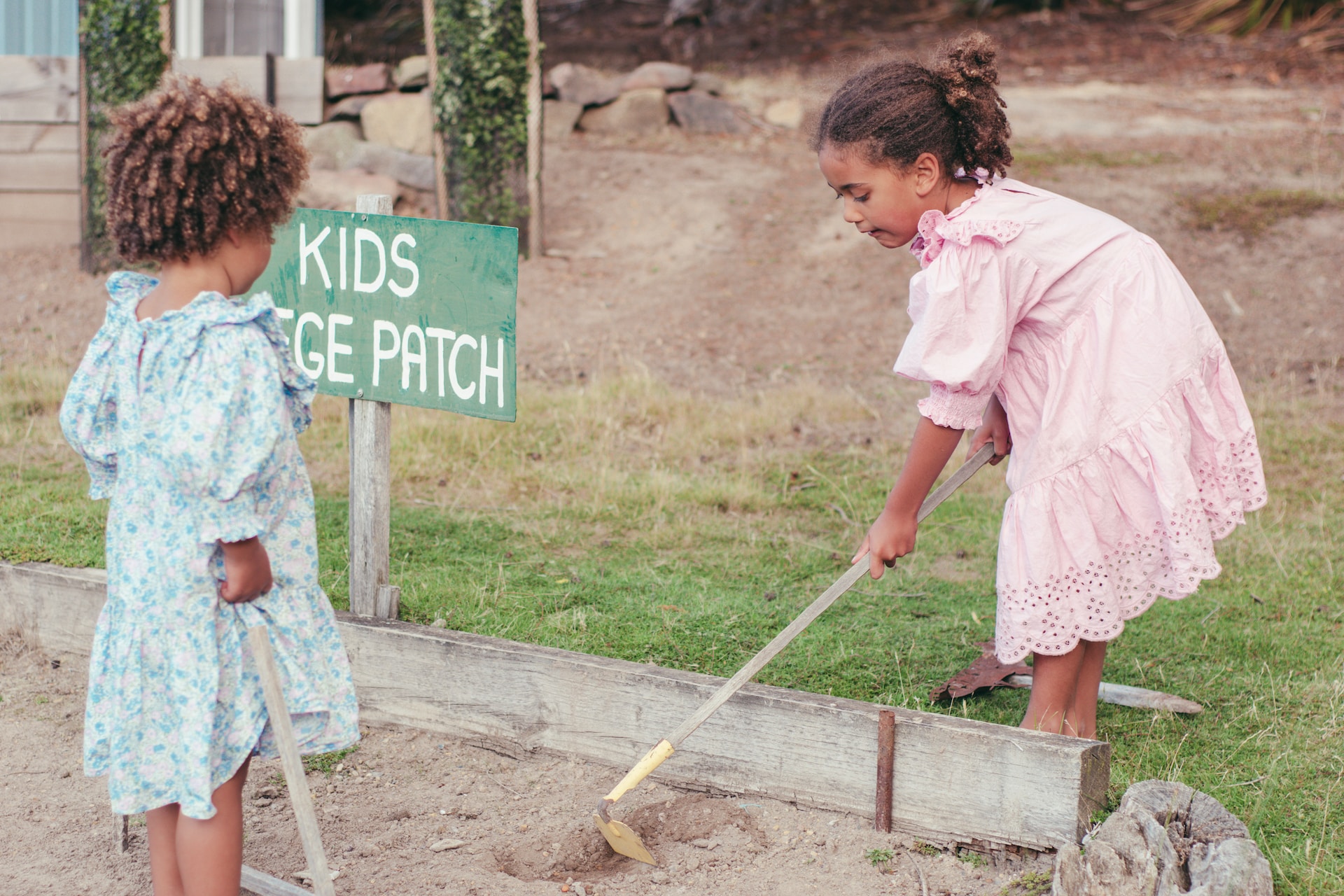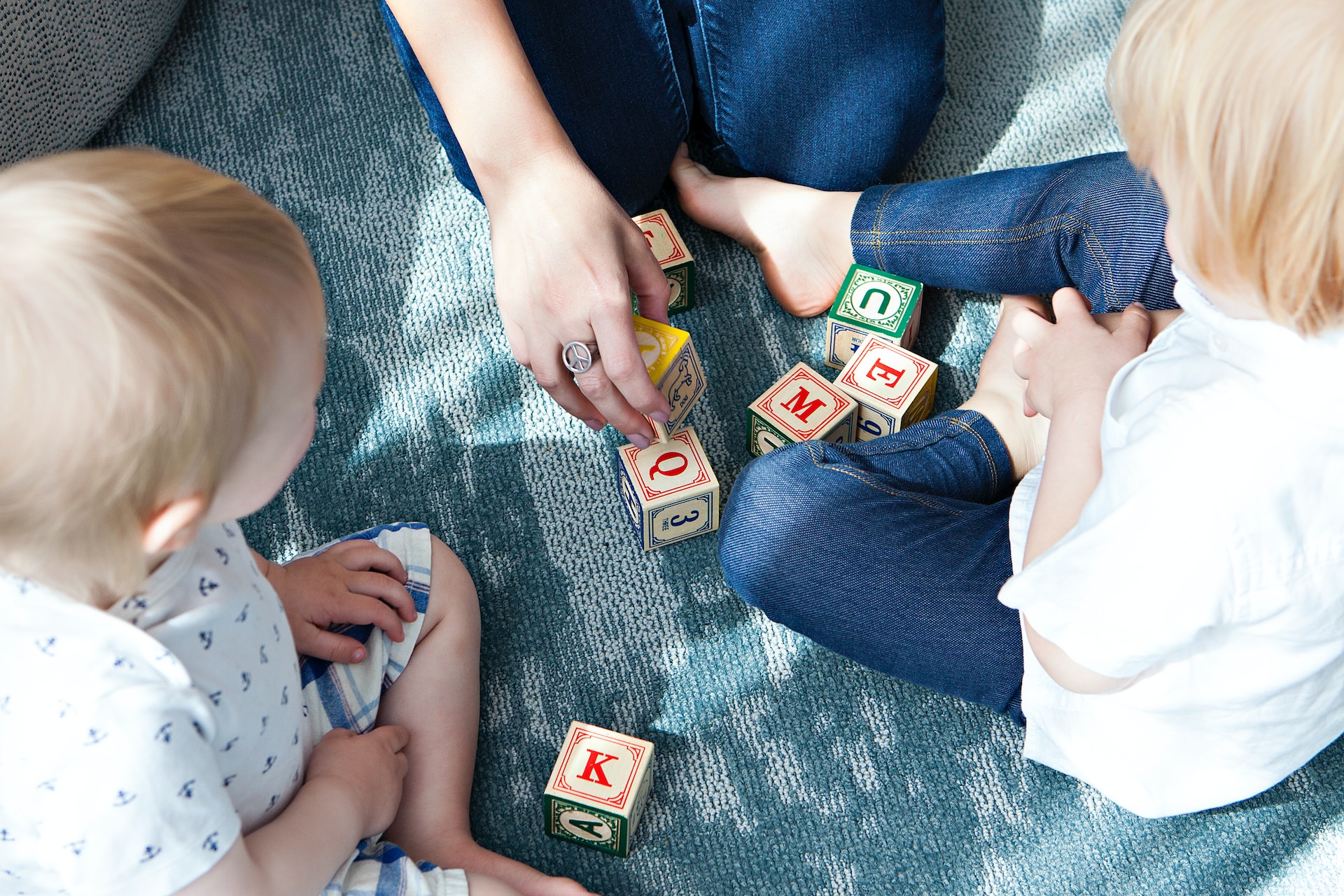Parenting is an exciting but also scary new adventure for any first-time parent. It's an incredibly rewarding time in your life that is filled with plenty of uphill battles and challenges, but it's all worth it. If you're feeling nervous, don't worry, it's normal! But to help you feel more comfortable and confident about what lies ahead, we'd like to share with you 40 useful parenting tips to give you a helping hand and let you start off strong.
1. Embrace Flexibility
Understand that parenting is often unpredictable. Be ready to adapt to new challenges and changes in your baby's routine or behavior.
 Photo by Steven Van Loy on Unsplash
Photo by Steven Van Loy on Unsplash
2. Establish a Routine
Consistency is key for a child's development. Try to establish a regular schedule for meals, naps, and bedtime to provide a sense of security.
 Photo by Daria Nepriakhina 🇺🇦 on Unsplash
Photo by Daria Nepriakhina 🇺🇦 on Unsplash
3. Prioritize Bonding Time
Spend quality time bonding with your baby through cuddling, talking, and playing. This fosters emotional development and strengthens your connection.
 Photo by Alberto Casetta on Unsplash
Photo by Alberto Casetta on Unsplash
4. Practice Patience
Parenting can be challenging, and it's important to remain patient. Understand that both you and your baby are learning and growing together.
 Photo by Haley Phelps on Unsplash
Photo by Haley Phelps on Unsplash
5. Encourage Exploration
Allow your child to explore and interact with their environment. This stimulates their curiosity and aids in their cognitive and motor skills development.
 Photo by Daiga Ellaby on Unsplash
Photo by Daiga Ellaby on Unsplash
6. Promote Healthy Eating
Introduce a variety of healthy foods to your child's diet. Good nutrition is crucial for their growth and overall health.
 Photo by Thomas Park on Unsplash
Photo by Thomas Park on Unsplash
7. Ensure Adequate Sleep
Prioritize your child’s sleep. A well-rested baby is generally happier and more alert, aiding in their overall development.
 Photo by Jelleke Vanooteghem on Unsplash
Photo by Jelleke Vanooteghem on Unsplash
8. Foster Independence
As your child grows, encourage small acts of independence, like choosing their clothes or helping with simple tasks, to build confidence and self-reliance.
9. Cultivate Emotional Intelligence
Talk about emotions and demonstrate empathy. This helps your child to understand and manage their feelings better.
 Photo by Fabian Centeno on Unsplash
Photo by Fabian Centeno on Unsplash
10. Engage in Educational Play
Use toys and games that are not only fun but also educational. This enhances learning and development through play.
 Photo by Robo Wunderkind on Unsplash
Photo by Robo Wunderkind on Unsplash
11. Maintain Good Hygiene
Teach and maintain good hygiene practices like regular hand washing. This is essential for your child's health and wellbeing.
 Photo by Diana Polekhina on Unsplash
Photo by Diana Polekhina on Unsplash
12. Create a Safe Environment
Child-proof your home to prevent accidents. Safety should always be a top priority.
 Photo by Stephen Andrews on Unsplash
Photo by Stephen Andrews on Unsplash
13. Read Together
Regularly read to your child. This activity supports language development and fosters a love for reading.
 Photo by Ben Griffiths on Unsplash
Photo by Ben Griffiths on Unsplash
14. Seek Support When Needed
Don’t hesitate to ask for help or advice from family, friends, or professionals. Parenting is a journey that doesn't have to be walked alone.
 Photo by Kelly Sikkema on Unsplash
Photo by Kelly Sikkema on Unsplash
15. Celebrate Milestones
Acknowledge and celebrate your child’s milestones, big or small. This encourages them and shows that you value their achievements.
 Photo by freestocks on Unsplash
Photo by freestocks on Unsplash
16. Understand Your Child's Temperament
Every child is unique. Pay attention to your child's individual temperament and adjust your parenting style to suit their personality and needs.
 Photo by Jordan Whitt on Unsplash
Photo by Jordan Whitt on Unsplash
17. Promote Language Development
Talk to your child often, even before they can speak. This early communication helps with language acquisition and cognitive development.
 Photo by Priscilla Du Preez 🇨🇦 on Unsplash
Photo by Priscilla Du Preez 🇨🇦 on Unsplash
18. Encourage Physical Activity
Make time for regular physical activities. This not only improves their physical health but also aids in motor skills development.
 Photo by Leo Rivas on Unsplash
Photo by Leo Rivas on Unsplash
19. Teach Social Skills
Model and teach social skills like sharing, empathy, and cooperation. This helps your child to interact positively with others.
 Photo by Artem Kniaz on Unsplash
Photo by Artem Kniaz on Unsplash
20. Limit Screen Time
Set boundaries on the amount of time spent on electronic devices. Encourage physical play and interaction to support overall development.
 Photo by Emily Wade on Unsplash
Photo by Emily Wade on Unsplash
21. Practice Positive Discipline
Use positive discipline techniques, focusing on guidance and understanding rather than punishment, to teach right from wrong.
 Photo by Alexander Dummer on Unsplash
Photo by Alexander Dummer on Unsplash
22. Develop a Support Network
Build a network of fellow parents, family, and friends. Sharing experiences and advice can be invaluable.
 Photo by Priscilla Du Preez 🇨🇦 on Unsplash
Photo by Priscilla Du Preez 🇨🇦 on Unsplash
23. Respect Individuality
Recognize and respect your child's individual interests and abilities. Encourage them to pursue their own passions and hobbies.
 Photo by Mieke Campbell on Unsplash
Photo by Mieke Campbell on Unsplash
24. Stay Informed
Keep yourself informed about child development stages and parenting strategies. Continuous learning is crucial in adapting to your child’s evolving needs.
 Photo by Kelly Sikkema on Unsplash
Photo by Kelly Sikkema on Unsplash
25. Balance Work and Family
Strive to find a balance between work commitments and family time. Quality time with your child is essential for a healthy relationship.
26. Practice Self-Care
Take care of your physical and mental health. A healthy parent is better equipped to handle the demands of parenting.
 Photo by Alisa Anton on Unsplash
Photo by Alisa Anton on Unsplash
27. Create a Loving Environment
Foster a loving, supportive home environment. A nurturing atmosphere contributes to a child's emotional and psychological well-being.
 Photo by Hoi An Photographer on Unsplash
Photo by Hoi An Photographer on Unsplash
28. Teach Responsibility
Introduce age-appropriate chores and responsibilities. This builds a sense of accountability and self-discipline.
 Photo by Muhammad-taha Ibrahim on Unsplash
Photo by Muhammad-taha Ibrahim on Unsplash
29. Celebrate Cultural Heritage
Teach your child about your family’s cultural background and traditions. This helps them develop a strong sense of identity and belonging.
 Photo by Polina Kuzovkova on Unsplash
Photo by Polina Kuzovkova on Unsplash
30. Maintain a Sense of Humor
Parenting is challenging, but maintaining a sense of humor can ease the stress. Laughter and fun are essential parts of a happy family life.
 Photo by Caroline Hernandez on Unsplash
Photo by Caroline Hernandez on Unsplash
31. Use Positive Reinforcement
Reward and praise good behavior more often than you punish bad behavior. This approach encourages your child to repeat the good behavior and understand the value of positive actions.
 Photo by Sebastián León Prado on Unsplash
Photo by Sebastián León Prado on Unsplash
32. Teach Financial Responsibility
Introduce basic concepts of money and saving in age-appropriate ways. This could be as simple as having a piggy bank or discussing the value of items during shopping.
 Photo by micheile henderson on Unsplash
Photo by micheile henderson on Unsplash
33. Encourage Creative Expression
Provide opportunities for your child to express themselves creatively, be it through drawing, painting, music, or storytelling. Creative activities foster imagination and emotional expression.
34. Promote Problem-Solving Skills
Encourage your child to solve problems on their own before stepping in to help. This can be done through games, puzzles, or daily challenges, enhancing their critical thinking and independence.
 Photo by Marisa Howenstine on Unsplash
Photo by Marisa Howenstine on Unsplash
35. Practice Active Listening
Make a conscious effort to listen actively to your child. Show them that their thoughts and feelings are important and valued, which builds trust and open communication.
 Photo by Some Tale on Unsplash
Photo by Some Tale on Unsplash
36. Encourage Healthy Risk-Taking
Allow your child to take manageable risks. This could be trying a new sport or solving a difficult problem on their own. It helps build resilience and confidence.
 Photo by Keith Johnston on Unsplash
Photo by Keith Johnston on Unsplash
37. Foster a Love for Learning
Cultivate an environment where learning is fun and exciting. Encourage curiosity and ask open-ended questions to stimulate thinking and exploration.
38. Set Realistic Expectations
Understand and set realistic expectations for your child’s abilities and behavior. This avoids undue pressure and helps in nurturing their self-esteem and growth.
 Photo by Alexa Williams on Unsplash
Photo by Alexa Williams on Unsplash
39. Teach Time Management
Introduce basic concepts of time management through routines and simple planning. This skill is crucial for personal organization and responsibility as they grow.
 Photo by Malvestida on Unsplash
Photo by Malvestida on Unsplash
40. Model Healthy Relationships
Demonstrate healthy interpersonal relationships in your daily life. How you interact with others teaches your child about respect, boundaries, and effective communication.












